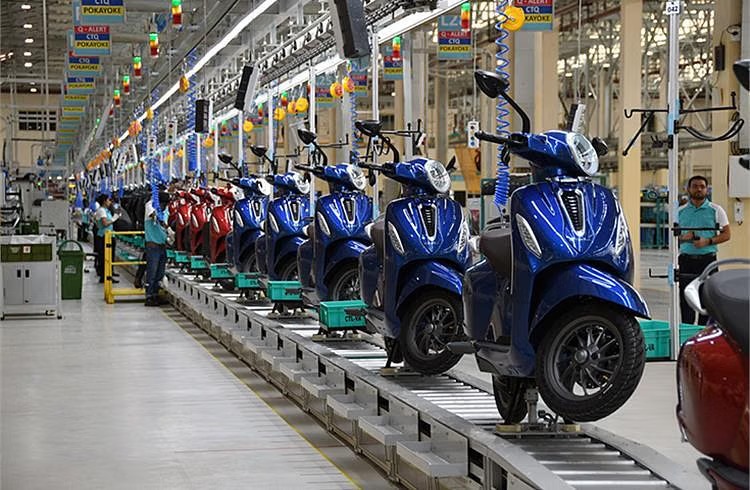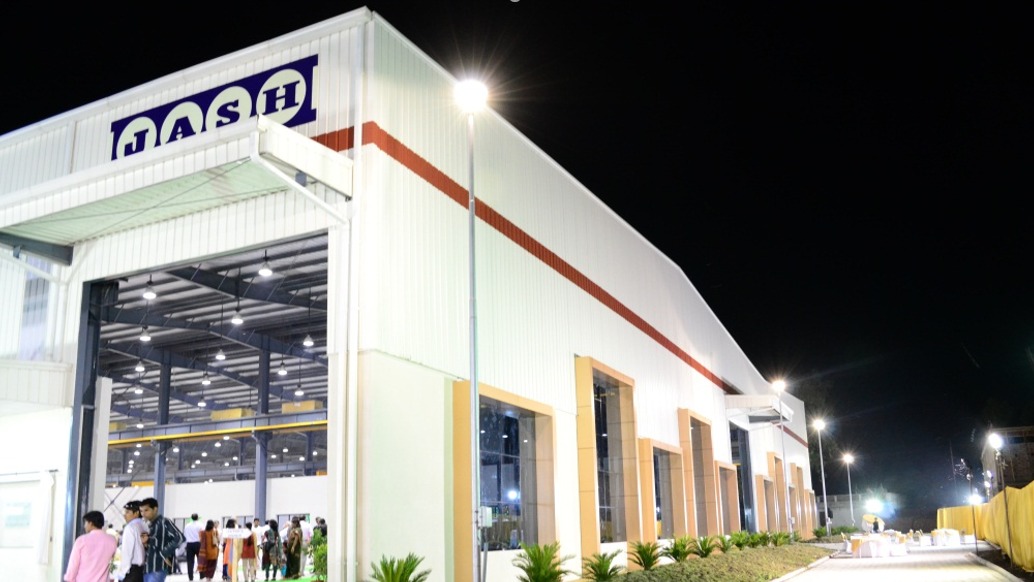
Follow WOWNEWS 24x7 on:

Bajaj Auto Ltd, one of India’s leading two- and three-wheeler manufacturers, has reported a significant drop in electric vehicle (EV) volumes for June 2025 due to a severe shortage of rare earth magnets. These magnets, essential for high-performance electric motors, have become increasingly scarce following export restrictions from China, the primary global supplier. The shortage has disrupted Bajaj’s supply chain and threatens to halt EV production entirely in August.
This development comes at a critical time for the company, which has been gaining momentum in the EV segment with its Chetak electric scooter and GoGo electric three-wheeler. The shortage not only affects Bajaj Auto’s production plans but also poses broader risks to India’s EV ecosystem.
Key Highlights From June
- Bajaj Auto experienced a sharp decline in EV volumes in June due to limited availability of rare earth magnets
- The company’s inventory of critical components was exhausted by the end of the month
- Production is expected to fall further in July, with a potential complete halt in August
- Rajiv Bajaj, Managing Director, has called for greater policy clarity and government support
Supply Chain Disruption And Component Shortage
Rare earth magnets are vital for the functioning of electric motors, particularly in high-efficiency EVs. These magnets are predominantly sourced from China, which recently imposed export restrictions, severely impacting global supply chains.
1. Nature Of The Shortage
- Heavy rare earth magnets used in Bajaj’s EV motors are now in short supply due to geopolitical trade curbs
- The company has no viable short-term alternatives, and redesigning components would require significant time and investment
2. Impact On Production
- Bajaj Auto’s EV production was halved in June and may drop to zero in August if the shortage persists
- The festive season, a peak sales period, is at risk of being disrupted due to inventory constraints
3. Broader Industry Implications
- Smaller EV manufacturers may survive on existing stock, but larger players like Bajaj face greater exposure
- Suppliers and dealerships dependent on Bajaj’s EV volumes could suffer financial strain
Strategic Challenges And Response
Bajaj Auto has acknowledged the complexity of finding substitutes or alternative suppliers in the short term. The company is exploring mid- to long-term strategies but warns that overhauling the supply chain is not a quick fix.
- Alternatives to rare earth magnets are limited and may compromise motor performance or cost efficiency
- Shifting sourcing away from China involves logistical and quality challenges
- The company has not yet sought relaxations under the Production Linked Incentive (PLI) scheme but is urging for clearer policy direction
Financial And Market Impact
While Bajaj Auto’s EV portfolio has become increasingly profitable, the current disruption could affect its earnings and market share:
- A production halt would impact EBITDA and revenue from the EV segment
- Rising input costs may not be easily passed on to consumers in India’s price-sensitive market
- Investors are watching closely, though the company’s diversified portfolio may cushion short-term volatility
Stakeholder Implications
- Dealers and suppliers face uncertainty, especially those who have scaled operations based on projected EV growth
- Consumers may experience delays or limited availability of Bajaj’s electric models during the festive season
- Policymakers are being urged to provide timely updates and support mechanisms to stabilize the industry
Conclusion
Bajaj Auto’s warning about the rare earth magnet shortage underscores the fragility of India’s EV supply chain and the urgent need for strategic interventions. With EV volumes already impacted in June and a potential production freeze looming in August, the company’s call for policy clarity and supply chain diversification is timely. As India pushes toward electrification, ensuring access to critical components will be key to sustaining momentum and protecting industry stakeholders.
Sources: Autocar India, Economic Times, Autocar Professional





